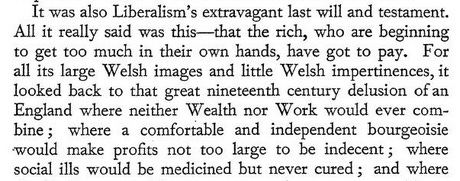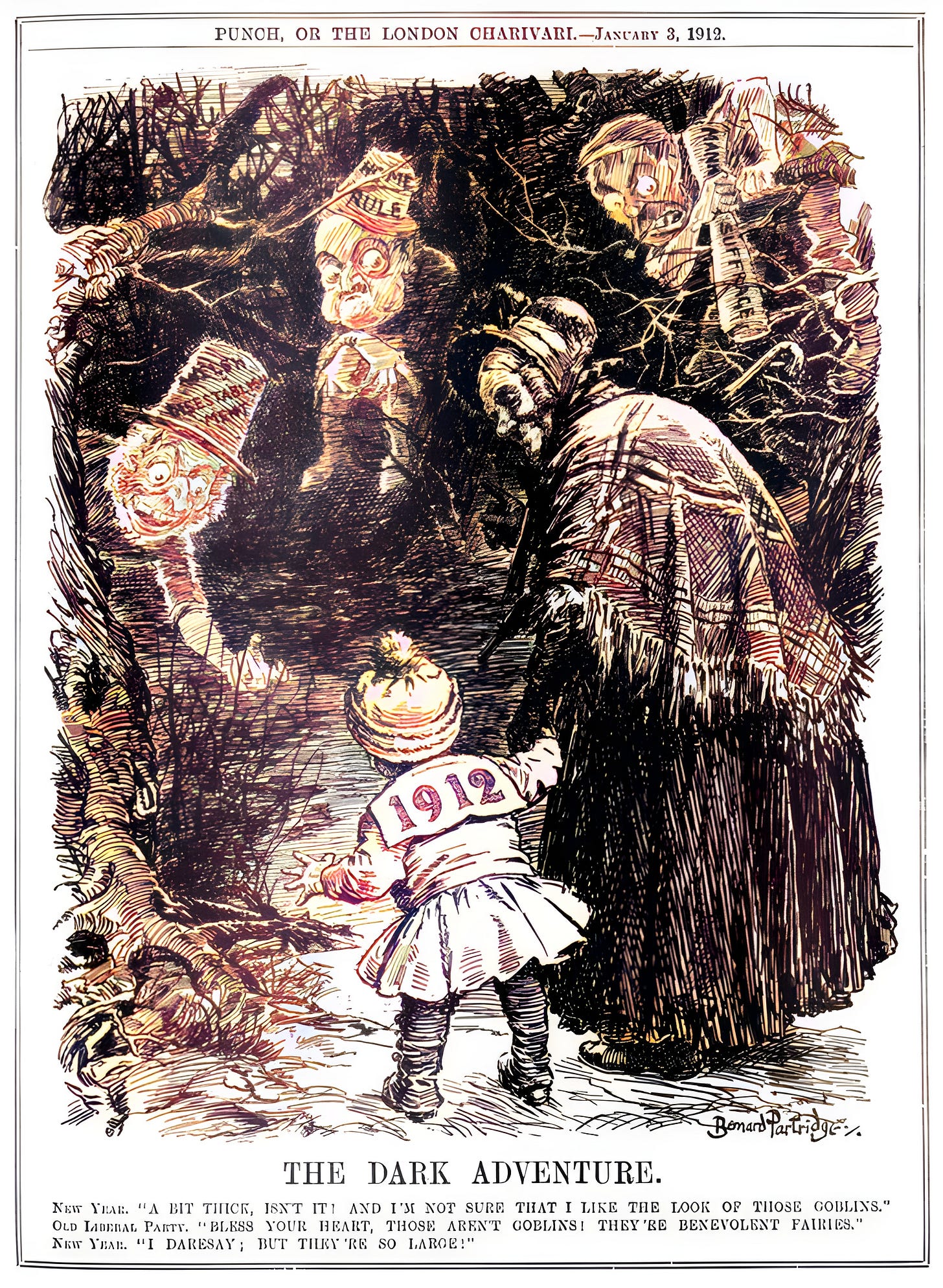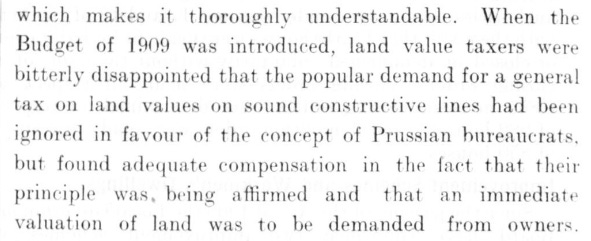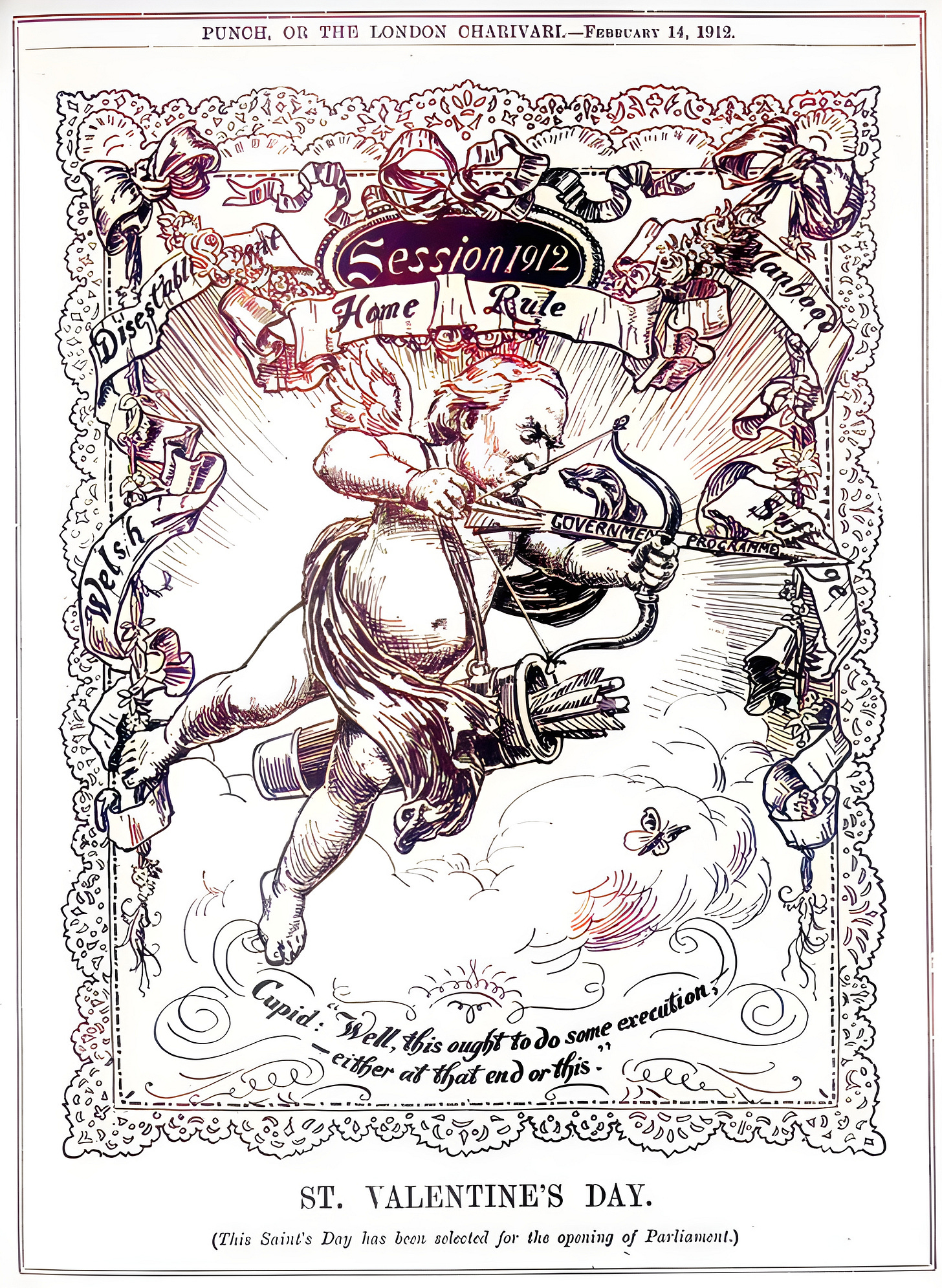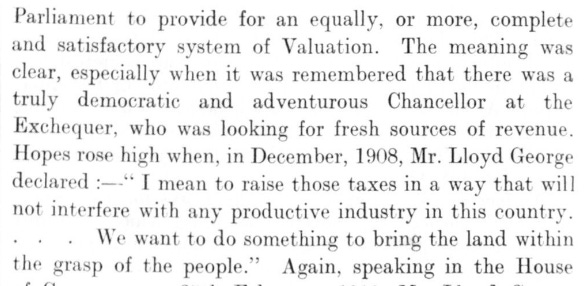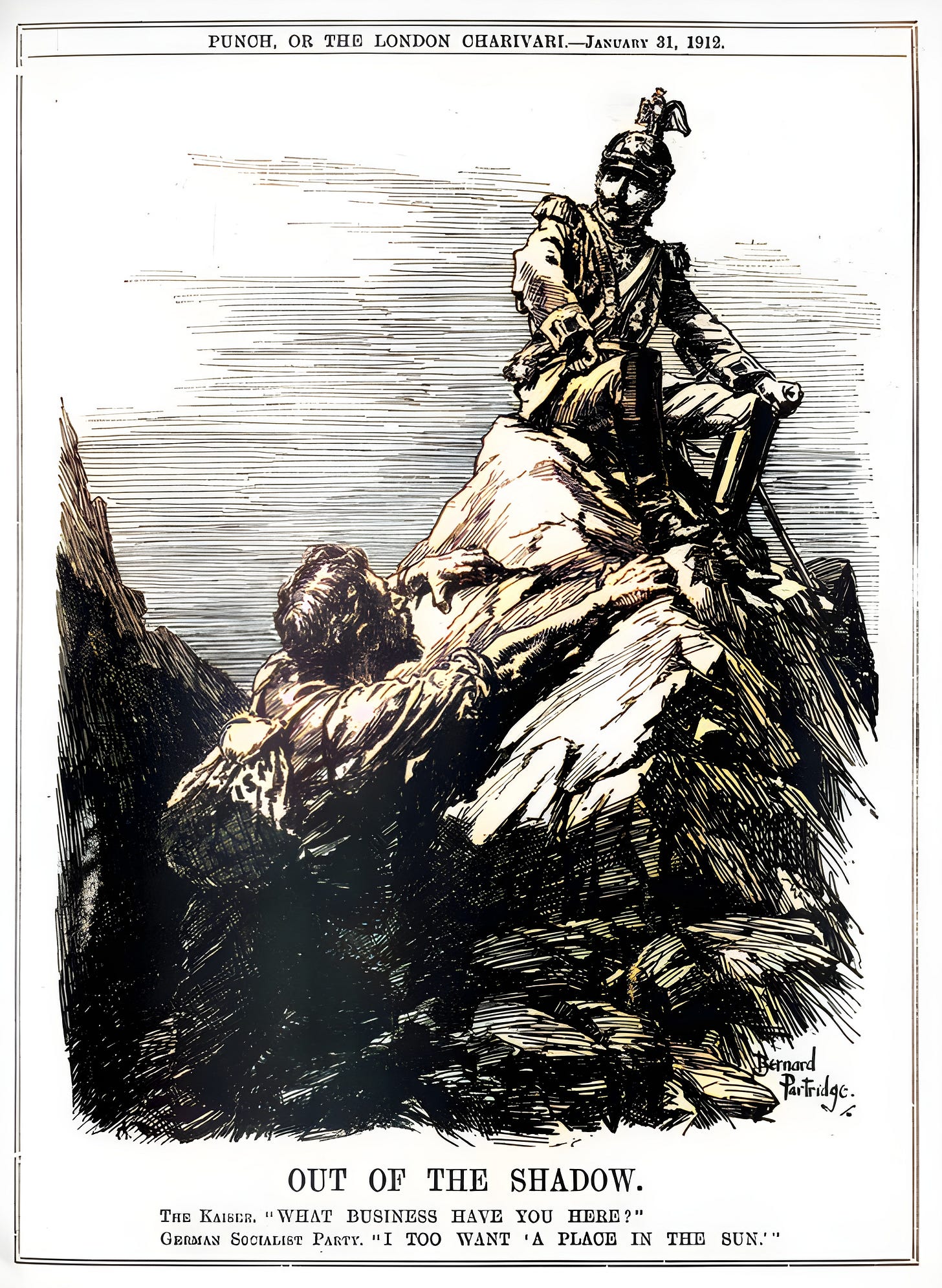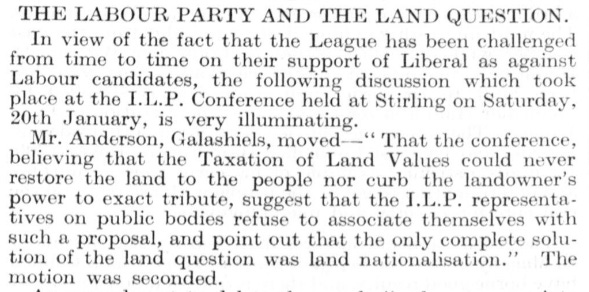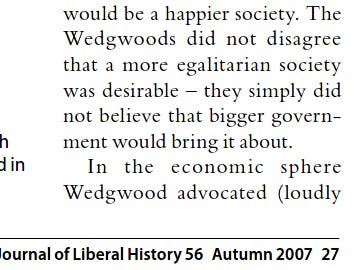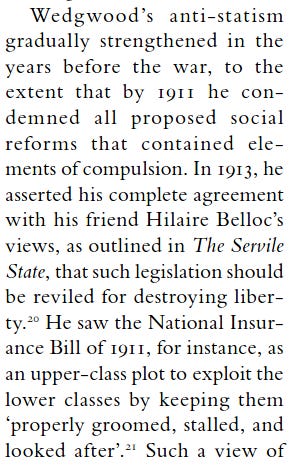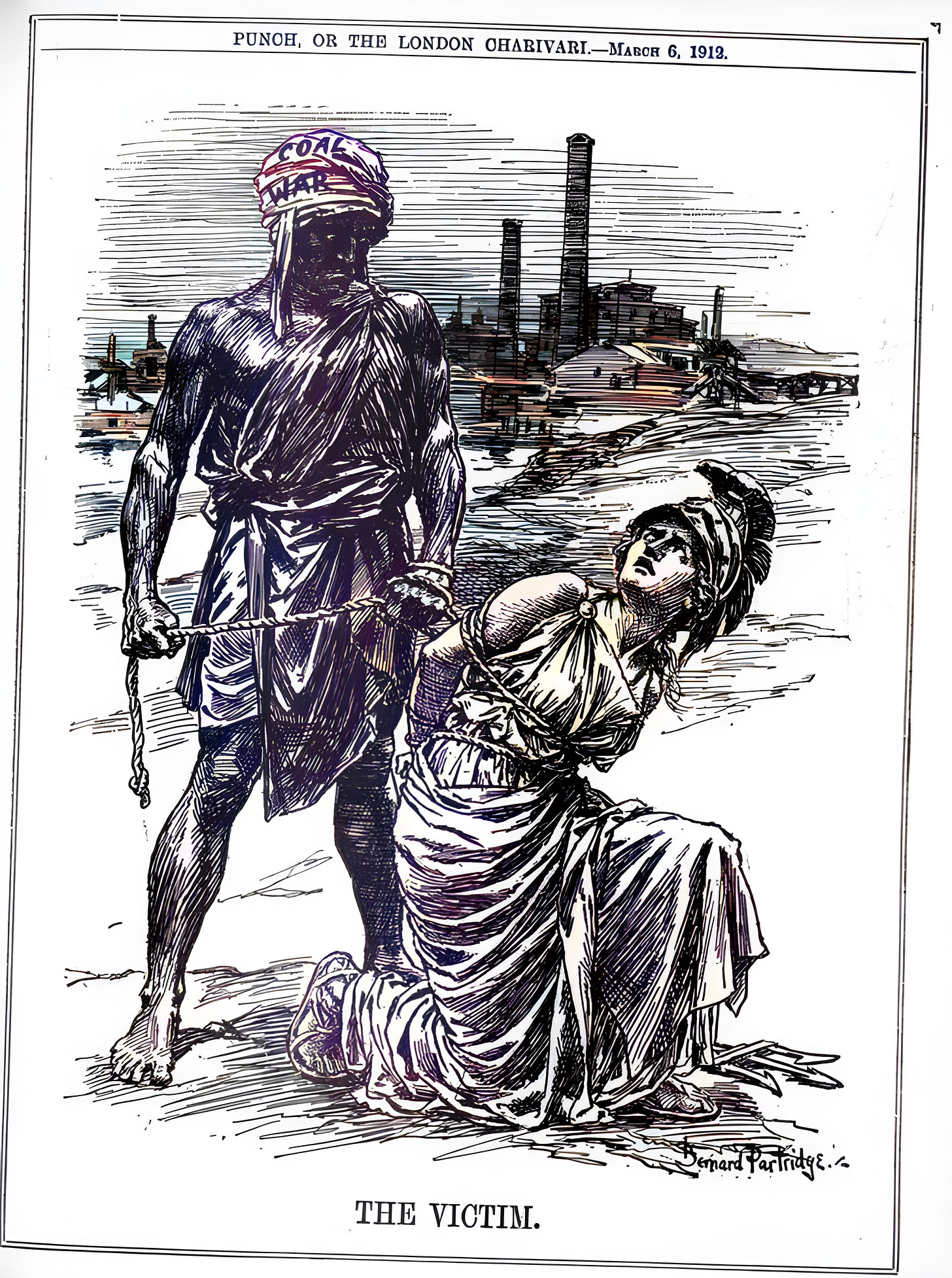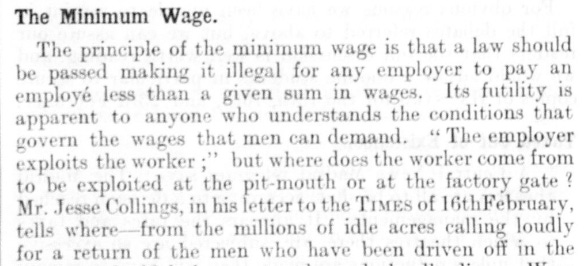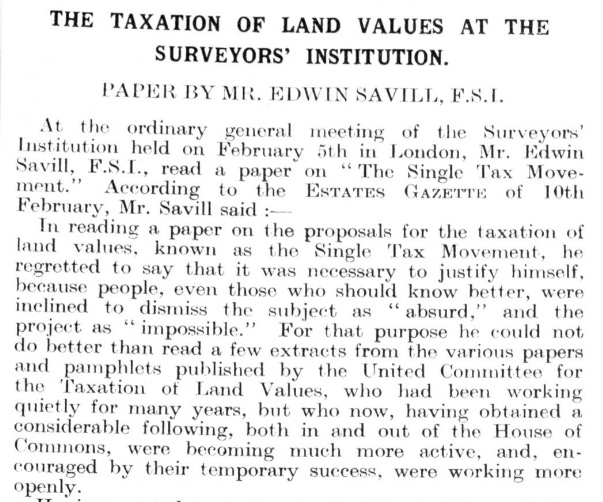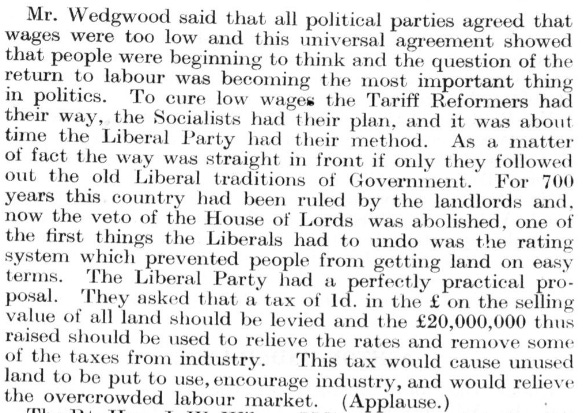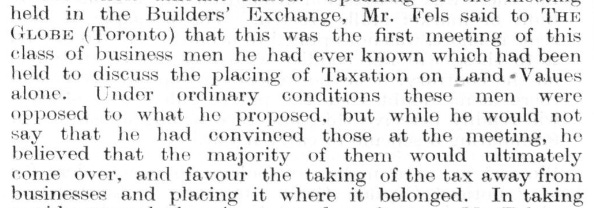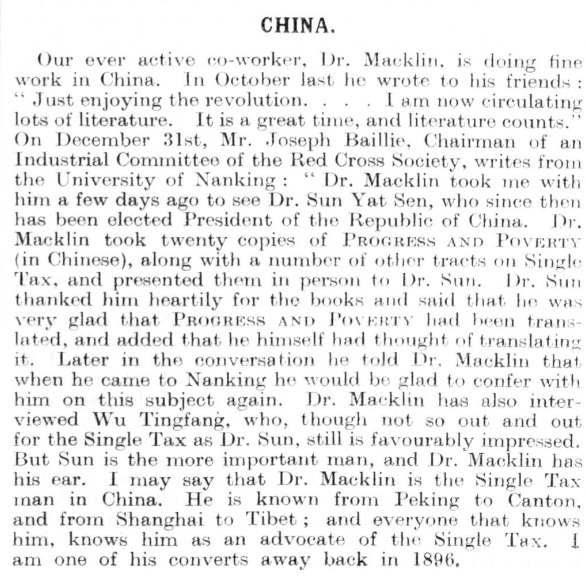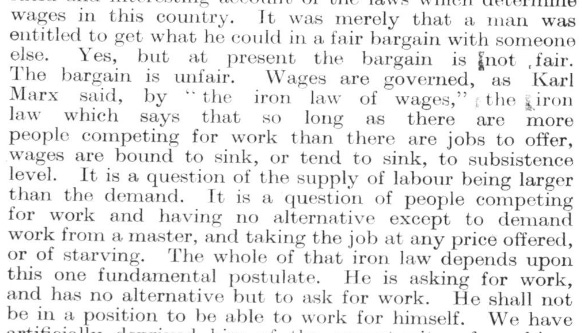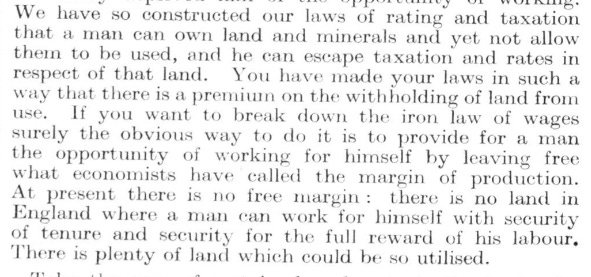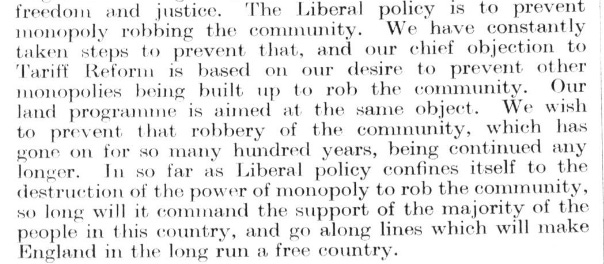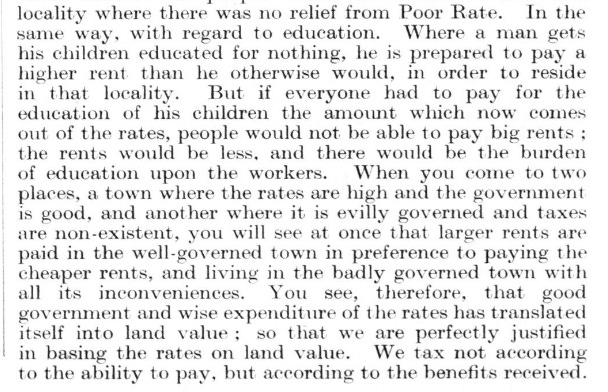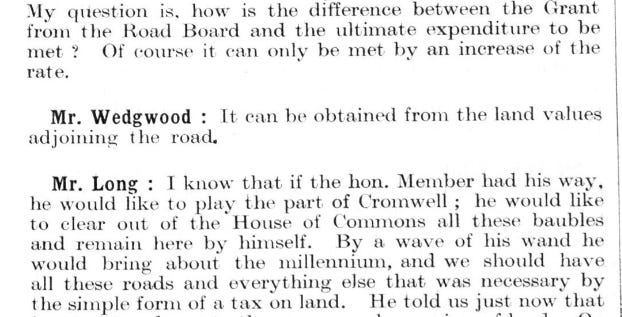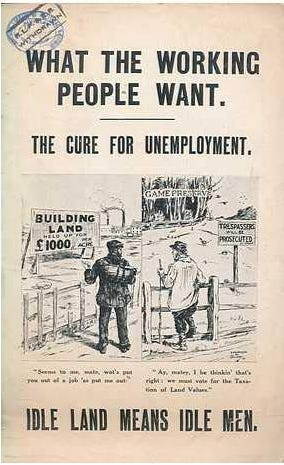The Single Tax v World War One (11) January-March 1912
“Every square inch of the United Kingdom is now being valued”
The Strange Death of Liberal England: radical history or radical memory hole?
George Dangerfield’s The Strange Death of Liberal England (1935) is the edgy history of this period. It uncovers a buried crisis, a Britain on the verge of civil war. And he begins with the Budget and the constitutional crisis:
However, in 464 pages, the Land campaign, the counter-campaign, the parliamentary debates, the great Hyde Park rally, and the looming prospect of the great Valuation, do not feature. The land campaign features only as a peculiar and personal quirk of Lloyd George. The debate over Single Tax philosophy does not feature at all.
Dangerfield refuses to name the beast. He flirts with naming it when he talks of “middle class philosophy” in relation to “landed wealth”, and when he refers to “Reform”, but not Land Reform (p58).
Dangerfield says it was Liberalism’s “extravagant last will and testament”? But in his own words, it was not faintly extravagent, and certainly not radical:
Dangerfield’s blanking of the land issue prevents him from filling out the picture his dramatic frame promises. He begs questions only the blank space can answer. What, for example, was it in Liberalism in 1912 that made the Tories want to destroy it as a living philosophy?
”here was the prophet of plenty”
Disappointingly, Dangerfield is obliged ridicule Lloyd George, the central figure of the period. Only in this way can one of the age’s greatest debates be written out of history.
Identical things were written about Henry George twenty-five years earlier during the first Single Tax crisis.
The Chancellor’s leadership of the land campaign, if it is to be mentioned, was nothing more than
”A few drops of personal vitriol”
The Strange Death of Liberal England is the repetition of an omission. Dangerfield’s is (another) “composite” theory of the last years before the victory of The State through its newest innovation, World War.
The abyss turns out to be the well worn list of factors and forces which netted out to send history down the path that it went. There is no single reason why the four election victories of 1906-1910 were the final election victories of the great Liberal party, no single reason why the House of Lords chose death over surrender.
Ultimately, Dangerfield’s book contributes to the closing of the debates over the root causes of unemployment, inequality of opportunity, monopoly and statism. It helps institutionalise the dreary Capital versus Labour paradigm.
With unconscious irony, Dangerfield makes Liberalism the victim of those it sought to rescue, Capital and Labour, while the very powerful class it had openly challenged, the monopolists of land, withdrew behind a veil.
Land Values, April 1910
“There would have been no rejection of the Budget but for the issue raised by the land clauses”
“a colossal fiasco”: “the Valuation by State officials is likely to be long delayed”
“so gentle in its working, so just in its principles, so simple in its practice”
Tariff Reform, ie taxing imports, was the policy the Conservatives proposed.
The valuation - not “a great cumbrous machine hopelessly broken down”
“a very great piece of work”
“a sensation in the audience”
“Canada is doing what the United States neglected to do”
“the business world and the community generally had been thoroughly roused by the wonderful budget fight of Lloyd George in Great Britain and by the remarkable example of the city of Vancouver”
“so delicate and precise, so bitterly sweet, and so independent in its outlook upon life”
“France has no need of being governed. She has need of being set free.”
Land: none in sight
Re-ignition of the land campaign
Lloyd George had been affected by ill health for much of 1911, his role in affairs much reduced.
Sir Edward Grey’s understanding of the political challenge
“The lesson the women have yet to learn is the lesson men are coming to learn”
“the reactionay element”
“the disappointment and disgust of the public”
“a truly democratic and adventurous Chancellor”
“History will record”
“Where have we got to? Are we on the right road?”
“If the valuers had to ascertain land value only, the valuation might be completed in a third of the time.”
Policies for the post Valuation future “will be pressed forward vigorously in Parliament”
“inconceivable that any Government should so soon embark again upon the troubled sea of land reform”
Margaret Thatcher understood this:
The campaign for LVT at the local level had been going on for over a decade.
“we can only tax land values or labour: monopoly values or the earnings of industry, and it is about time Liberalism decided which of these ways it intends going.”
Scotland: Landlordism supreme
One view of the land tax campaign
230 million leaflets: “The United Commitee for the Taxation of Land Values … whose energy is prodigious.”
“The democratic myth of government by the people has, however, now taken such a definite concrete form that I believe we can no longer treat the question in this light-hearted way.”
Mass democracy was just a few decades old at this time. Land Value Taxation, as a policy of government is seen here as symptomatic of that mass democracy. Much the same was being said in Germany in relation to Socialism (see below). The adoption of Single Tax principles by government is here used to question the legitimacy of mass democracy itself.
“We cannot afford to laugh at these proposals. The attack is too well sustained and too virulent.”
“Today a change has come over the country.”
“We have no longer an effective second legislative chamber independent of the dictates of a mere numerical majority”
“The proposals for the Taxation of Land Values should be met now before they reach the stage of a Bill before Parliament.”
“Every square inch of the United Kingdom is now being valued”
Hundreds of meetings, millions of leaflets
Germany veers Left: the election of 1912
The Kaiser, contemplating the first Socialist government of Germany.
Parties hostile or ambivalent to the ruling elites of the German Empire – the Social Democrats, the Centre Party, and the left-liberal Progressives – together won a majority of the seats.
Some historians, such as Fritz Fischer, have theorized that the First World War was partly a result of the strategy of the conservative Prussian Junkers to deal with the result. In an attempt to increase support for conservative parties and policies and to distract the population from the SPD, they hoped to drum up patriotism in an external conflict with Russia or another Eastern European state such as Serbia.
https://en.wikipedia.org/wiki/1912_German_federal_election
“devastating electoral defeat”
“The German people was not politically ready for a universal, equal, direct and secret suffrage.”
“democracy became the whipping boy”
“a different age has given notice of its arrival”
“evolutionary developments”
“the Social Democrats will renounce revolution”
“pre-military training of the young”
“mobilisation of the public constituted the basis of the new ‘demagogic’ imperialism”
“We are filled with anxiety. … We see democratisation advance in almost every sphere”
- from War of illusions : German policies from 1911 to 1914, Fischer, Fritz, (1975)
Conclusion: The right wing in Germany was facing the same thing as the right wing in the UK: democracy bringing novel and ‘dangerous’ policies into government.
“Taxation of Land Values could never restore the land to the people”
“the best hard-hitting, two-handed fighter in the Single Tax movement in America”
Ethel Wedgwood was wife to Josiah Wedgwood, prominent Single Tax M.P.
- Paul Mulvey, Individualist Thought And Radicalism, Josiah C. Wedgwood’s Battle Aganst The Collectivists, 1906 – 1914, Journal of Liberal History 56 Autumn 2007
“All the value of all the land has been produced by all the people.”
The national coal strike of March 1912. The Liberal government had made radical promises. For six years it had been unable to deliver and was now pursuing palliative policies. Three elections, three mandates, had changed nothing. Cynical of politics, the workers went on strike.
The striking miners demanded a minimum wage. Churchill and many other Liberals opposed state regulation of wages. However, even supporters of the Single Tax philosophy such as Sir Edward Grey argued there was no other way to prevent “chaos, riots and bloodshed”. The miner’s got their wish, the strikes petered out and Lloyd George himself became an advocate for the idea.
“It was the moment for a great adventure. If the Liberal party was to save its life it must be ready to lose it”
“with the instinct of the great strategist Mr Lloyd George seized on the vulnerable point in the enemy’s defences and staked everything on the throw. He attacked the land monopoly.”
Seven hundred years: but in 1912, the door was open
“the great organ was playing the Land Song and the audience singing fine”
Joseph Fels took up one of Henry George’s jobs - travelling and speaking.
“the first meeting of this class of business men to discuss the placing of Taxation on Land Values”
“Unearned Increment, Soap, Cows and Land.”
The Hat tips as the Single Tax rolls eastwards
Dr. Sun Yat Sen: “out and out for the Single Tax”
Before Henry George: Calvin, Winstanley the Digger, the Physiocrats …
Land Values devoted a lot of space to international news.
The Diggers: “True Commonwealth’s freedom lies in the free enjoyment of the earth.”
“the earth was made by the Lord to be a Common Treasury for all, both rich and poor”
Ramsay Macdonald (future prime minister, Labour): Socialism opts for land nationalisation, a more radical policy than the Single Tax.










